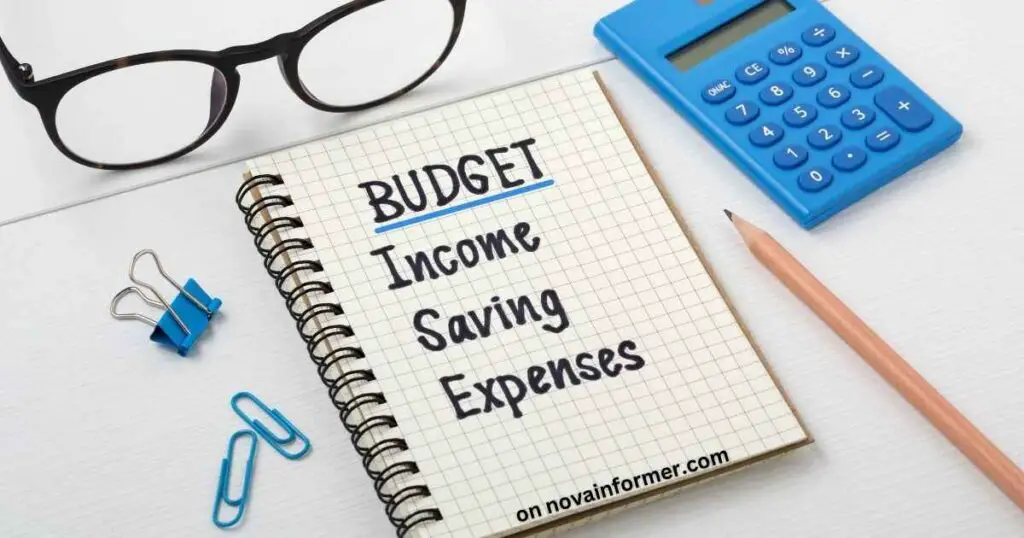Learn the simple secrets of personal finance to take control of your money, achieve your dreams, and live a richer life, even if you’re starting small.
Are you tired of feeling like a broke college student living on ramen noodles? Do you dream of having enough money to travel the world, buy a house, or just not stress about bills?
Good news!
You don’t need a magic wand or a winning lottery ticket to achieve your financial goals. All you need is a sprinkle of knowledge and a dash of discipline.
Get ready to discover the secret recipe for a richer life, one step at a time!
1. Track Your Spending: Where’s Your Money Hiding? 🕵️♂️
The first step to becoming a money wizard is knowing where your money is going. Imagine you’re a detective, following the trail of your hard-earned cash.
Track your spending for a week or two and write down every expense, no matter how small.
This will help you identify your spending habits and find areas where you can cut back.
2. Make a Budget: Your Money Map to Success 🗺️
Now that you know where your money is going, it’s time to create a budget. A budget is like a roadmap for your finances.
It tells you how much money you have coming in and where it needs to go.
This helps you make sure you have enough money for all your needs and some leftover for your wants.
Here’s a simple example:
| Category | Monthly Amount ($) |
| Housing (rent/mortgage) | 500 |
| Food | 300 |
| Transportation | 100 |
| Utilities | 150 |
| Debt Payments | 200 |
| Savings | 100 |
| Fun Money | 50 |
| Total | 1400 |
Note: This is just an example. Your budget will be different depending on your income and expenses.
3. Save for a Rainy Day: Build Your Emergency Fund ☔
An emergency fund is like a safety net for your finances.
It’s money you set aside for unexpected expenses like car repairs, medical bills, or job loss.
Aim to save at least three to six months’ worth of living expenses in your emergency fund.
This will give you peace of mind and help you avoid going into debt when life throws you a curveball.
4. Pay Yourself First: The Golden Rule of Saving 💰
“Pay yourself first” means setting aside a portion of your income for savings before you pay any other bills or expenses.
It’s like giving yourself a raise before you even spend a dime.
You can automate this process by setting up automatic transfers from your checking account to your savings account each month. This way, you’ll save money without even thinking about it.
5. Invest in Your Future: Make Your Money Grow 🌱
Investing is like planting seeds that can grow into a bountiful harvest of wealth over time. It’s a way to make your money work for you and generate additional income.
There are many different types of investments, so it’s important to do your research and choose ones that match your risk tolerance and financial goals.
Here are some popular investment options:
- Stocks: Buying shares of ownership in a company.
- Bonds: Lending money to a company or government in exchange for interest payments.
- Mutual Funds: A collection of stocks and/or bonds managed by a professional.
- Real Estate: Investing in property for rental income or potential appreciation.
Remember, investing involves risk, so it’s important to start small and diversify your investments.
6. Conquer Debt: Break Free from the Money Monster 👹
Debt can be a heavy burden that prevents you from achieving your financial goals.
It’s like a monster that’s constantly draining your resources.
To conquer debt, start by creating a debt repayment plan. This might involve prioritizing high-interest debts, consolidating your debts, or seeking professional help from a credit counselor.
Remember, every dollar you pay towards debt is a step closer to financial freedom.
7. Live Below Your Means: The Secret to Wealth 🤫
Living below your means simply means spending less than you earn and saving the rest.
It’s the golden rule of personal finance and the key to building wealth over time.
This doesn’t mean you have to live a life of deprivation. It means being mindful of your spending, avoiding impulse purchases, and finding ways to save money on everyday expenses.
8. Review and Adjust: Your Financial Checkup 🩺
Your financial situation will change over time, so it’s important to review your budget and financial plan regularly.
This will help you stay on track and ensure that your plan is still aligned with your goals.
Take Note
By following these simple steps, you can take control of your finances and build a brighter future.
Remember, personal finance is a marathon, not a sprint. It takes time, effort, and discipline, but the rewards are worth it. So start today, and get ready to enjoy a richer life!



